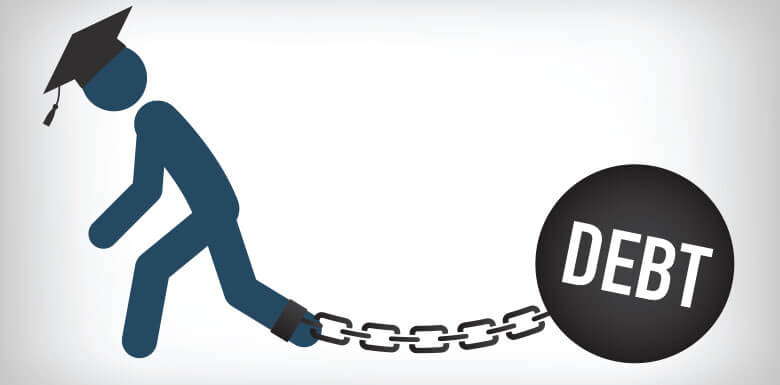
Written by Jonathan Breeden
When you are going through a divorce, a lot of questions come to mind. You are probably worried about your financial obligations during the process and after. If you or your spouse have debt, be it a mortgage, auto loans, credit cards, medical debt, or student loans, you worry about how much you will be obligated to pay after the divorce. It is frustrating to think you may be liable for debt you didn’t incur, such as your ex-spouse’s student loans. The average student loan debt per graduate is $37,172 in 2019, according to Nitro College. If your spouse went to medical, law, or graduate school, they probably owe much more.
The thought of having to pay hundreds of dollars each month toward their student loan debt is naturally concerning. You should talk with an experienced North Carolina divorce lawyer about how student loans are handled in a divorce. You can reach Breeden Law Office at (919) 661-4970, or use the online form to request a case consultation.
Whether or not you are liable for all or part of your ex’s student loans depends on several factors, including when they obtained the federal or private student loan, and whether you signed the loan documents as a co-signer. The answer to this question also depends on how your state handles property division during a divorce, and whether you had a prenuptial agreement that governed how you two would handle the loans.
If your spouse took out the student loans before you two were married, then they are likely his or her responsibility. Debt incurred before a marriage is separate property unless you two did something to transform it into marital property.
One way you may have transformed debt into a joint responsibility is if you jointly consolidated or re-financed your student loans. If you and your spouse consolidated or re-financed your separate loans into one principal amount, you both agreed to pay the full amount.
After the divorce, you may both continue to be responsible for the amount, and you will have to continue to make payments either based on an agreement with your spouse or based on a court order. This is true if you took advantage of spousal consolidation, which Congress allowed before 2006.
If you consolidated or re-financed private student loans, separating them may be possible. You should talk with your divorce lawyer and a financial advisor regarding whether you can officially separate the consolidated loans.
A cosigner is someone who agrees to repay the loan if the other party fails to do so. Federal direct student loans do not require cosigners. In rare cases, a federal student loan may require an endorser, who is like a cosigner for a borrower with a poor credit history. Private loans for undergraduate and graduate students require a cosigner much more often.
If you co-signed a private student loan or you endorsed your spouse’s federal loan, the creditor can hold you responsible for the debt, even after a divorce.
If your spouse had student loan debt when you became engaged, or you both had student loans, you may have addressed this debt in a prenuptial agreement. This agreement may state that any student loan debt you or your spouse took out remains your individual responsibility. Or, the agreement may state that you or your spouse take responsibility for part of the debt in the event of a divorce.
The prenup can control how debt is handled in a divorce. However, it cannot override a contractual agreement you made with a creditor. If you co-signed a loan, it does not matter if the prenup says you will not be liable for the loan. If your ex stops paying the debt, the creditor can come after you.
At the end of the day, the creditor is concerned with whose name is on the loan documents. If you signed any paperwork making yourself responsible for that debt, then the creditor can pursue you for payments in the future, even if your ex agreed in the divorce to pay the debt.
If you are concerned about your spouse’s student loans or other debt during a divorce, it will help you to talk with an experienced divorce attorney. A lawyer from Breeden Law Office will discuss the type of loans with you and explain your potential liability.
Call Breeden Law Office at (919) 661-4970, or submit your information through the online form to request an initial consultation of your case.